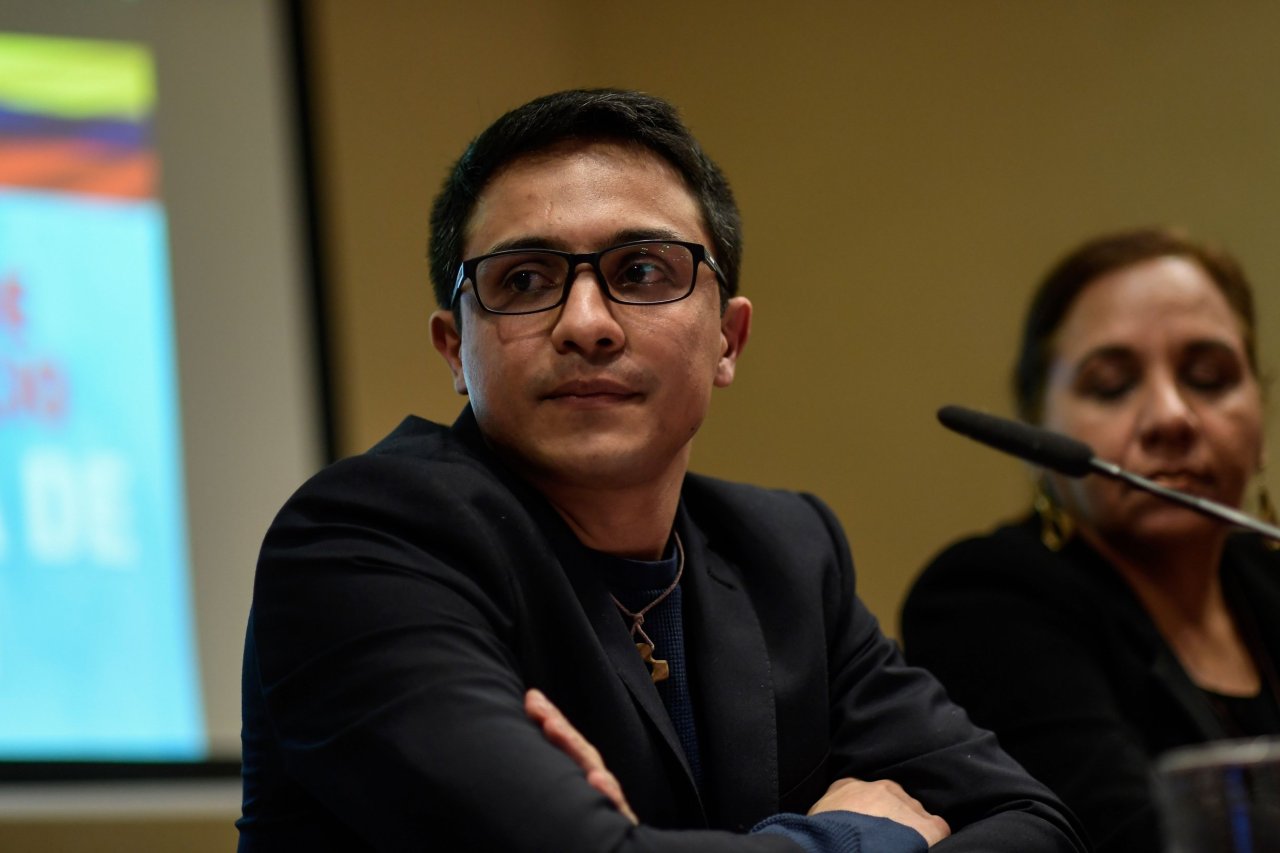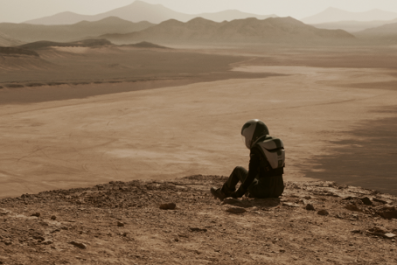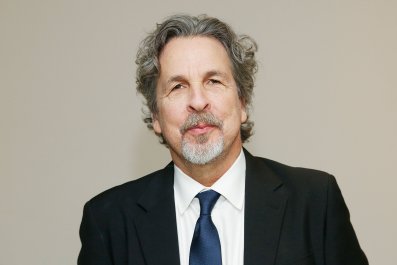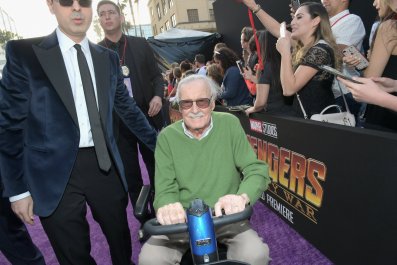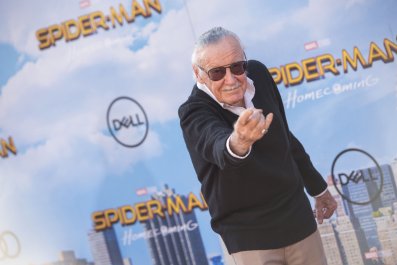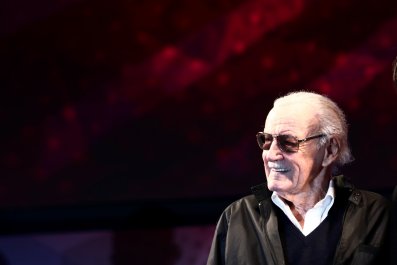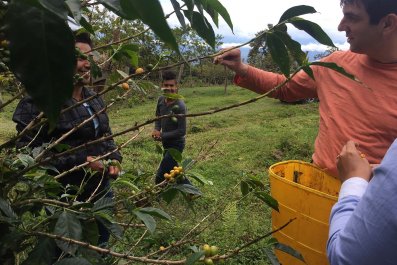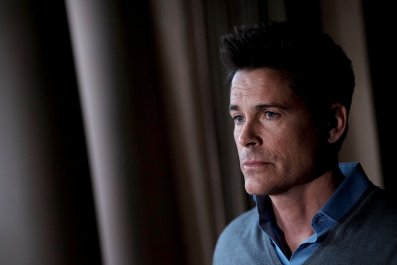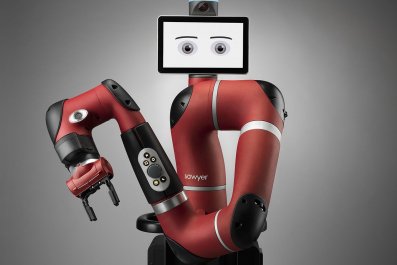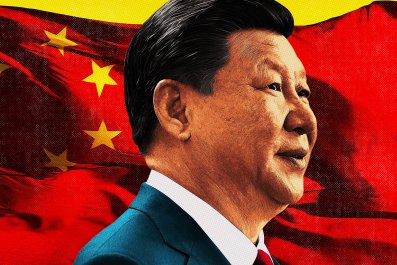In the early 2000s, Venezuelan President Hugo Chávez's administration began clamping down on political dissidents who were critical of his populist measures, which would later push the country to the brink of socio-economic collapse—and the largest exodus in the Western Hemisphere.
Among the leading opposition forces was Lorent Saleh. The student leader helped organize nationwide and international protests to condemn the human rights abuses of the Chavez, and later, Nicolas Maduro regimes. In 2014, Saleh moved to Colombia to study defense at the Superior School of War, but he soon ran into trouble. The country extradited Saleh back to Venezuela on grounds that he was carrying out political activities as a tourist, a violation of Colombian law. Maduro accused Saleh, then 26, of receiving military training to conduct terrorist attacks in Venezuela—a claim he denied.
For the next four years, he found himself behind bars in two of the most frightening intelligence facilities in Venezuela: La Tumba—Spanish for "the tomb"—and El Helicoide. The former is a 16-story building that contains windowless, white-and-gray-colored cells located five flights below the surface; the only sound inmates can hear is the subway running on the tracks above. The latter, originally built to be a luxurious mall in the 1950s, turned out to be a center of torture for the country's spy agency, the Bolivarian National Intelligence Service (SEBIN).
Saleh's case became worldwide news, a prime example of Nicolas Maduro's systemic human rights violations. In 2017, he received the European Parliament's Sakharov Prize for Freedom of Thought, whose first recipient was Nelson Mandela, in 1988. On October 12, the Maduro regime set Saleh, now 30, free, citing suicidal tendencies. The following day, Saleh moved to Spain with his mother.
In an interview with Newsweek, Saleh describes his ordeal in prison, what the Trump administration should do to help Venezuela and why the world should no longer ignore one of its worst humanitarian crises. This interview has been edited for length.
The U.S. has a new Congress. Do you think lawmakers should exert more pressure over Venezuela?
Democrats and Republicans believe and champion liberty and democracy, and they must be aware of how the Venezuelan regime represents a threat to North American citizens because it has become a hub for international terrorist groups and drug trade. Once the U.S. stops buying oil from Venezuela, the regime will fall.
Do you think Trump's sanctions on Venezuelan officials really weaken the regime?
I believe sanctions work. In fact, I asked the Spanish government to increase and deepen them as well, not just against officials but those who are affiliated with them. It's important for Latin American countries too. An individual who unabashedly commits human rights atrocities and is involved in big corruption cases can't go unpunished. With the arrival of right-wing Jair Bolsonaro as the new president of Brazil next year, we could see a harder stance on Venezuela.
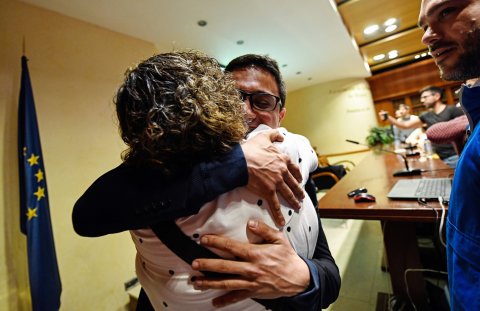
But Bolsonaro is a man who has praised his country's past military dictatorship, which was also ruthless against political dissent.
He may have said one thing as a candidate, but I'm sure he won't be as radical once he assumes power.
What do you think about military action against the regime, as Donald Trump and anti-Maduro figures like former Colombian President Alvaro Uribe have suggested?
I don't believe in an armed struggle—and mind you, I come from the most radical line of Venezuela's opposition. There is already violence in Venezuela, so more violence won't bring a solution to this issue. A call for political willingness from the U.S. and Latin America to condemn the regime is more effective. I do believe in resistance because I helped create it in my country. In my years behind bars, they tried to break my spirit down, but they couldn't.
Let's talk about what you endured in prison.
El Helicoide is an overcrowded, old building where you find murderers, bankers, entrepreneurs, drug traffickers and a large group of political prisoners. It is controlled by Venezuelan intelligence and is more violent. It is the epitome of physical torture and sadism.
On the other hand, La Tumba is a modern and sophisticated place located underground. It has a glaring white light and is a low-temperature laboratory that looks more like a madhouse because it's used for psychological torture. Prisoners live under 24-hour surveillance, and there's absolutely no communication with anybody. You can feel the state's sheer oppression; you don't know what time it is because it doesn't exist there, and you lose the notion of everything. It is not spearheaded by Venezuelans; you can feel the presence of Cubans and Russians there.
Please explain the role of Cubans and Russians.
The entire intelligence apparatus from Venezuela was handed over to the Cuban and Russian service. They have indoctrinated Venezuelan security with their social control mechanisms. We as Venezuelans know this because they have managed to create an espionage squad. However, the Venezuelan agents have grown disgruntled because they also suffer from hunger and insecurity on the streets, hence the reason they're so violent.
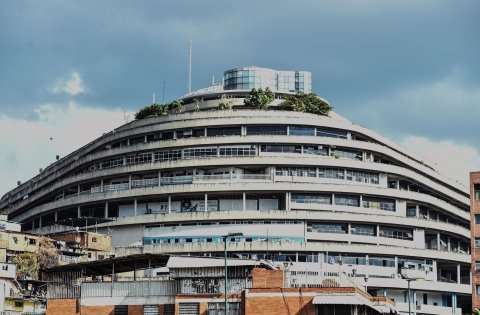
How many political prisoners are there today?
At least 300, but it's hard to know an official tally, and I tell you why. In El Helicoide, there are a lot of kidnapped people few in Venezuela know about. I managed to get out of jail, but another 20 or so could have been apprehended at the same time because they constantly raid houses in search of alleged enemies of the state, including journalists. Regime officials do as they please because the country restricted the entry of international human rights monitors. This is out of control. They abduct people in order to demand a huge ransom, and you have no attorneys or an ombudsman to help you because the judicial system is in line with the government.
The government cites that you were set free because of suicide attempts, but lots of Venezuelans do not believe this version. Why do you think you got out of jail?
It's a combination of many things. The EU awarded me the Sakharov Prize while the Catholic Church, the U.S. and Latin American governments wielded pressure over the Maduro regime. My mother traveled across the world so that people knew about my plight, and media also played a pivotal role.
I also think that my desire for freedom and due process in my country became like a virus inside the prison.
Had Chávez survived his cancer, would Venezuela have hit rock bottom?
The crisis would have worsened. Let's not forget that Chávez was riding on high oil prices that helped finance the so-called revolution, but he was jailing and killing people, including many of my colleagues. Venezuela's socio-economic collapse and its collusion with terrorist groups such as Hezbollah, the Revolutionary Armed Forces of Colombia and ISIS is the result of Chavez's policies.
Did you ever think you would get out of prison alive?
Death was always imminent because I was at the mercy of my enemies. The same day I was surrendered to the Spanish government I thought I was going to die. Now that I live in Spain, I still wake up with the feeling that I could go to another cell at any moment. The threat is always present for those who defend human rights.



